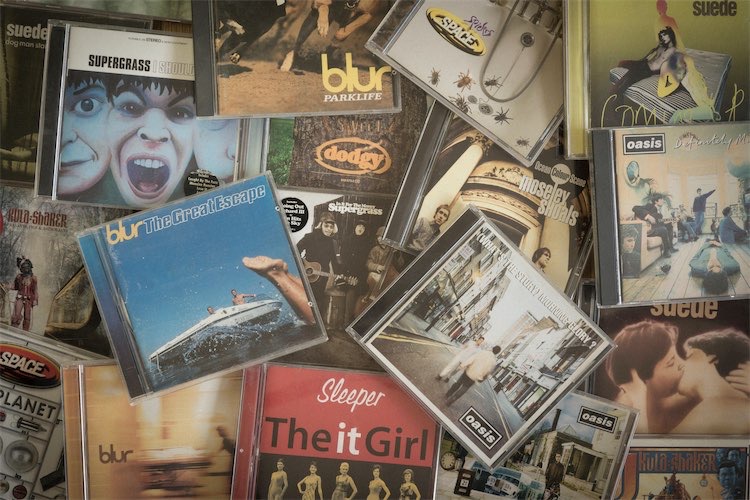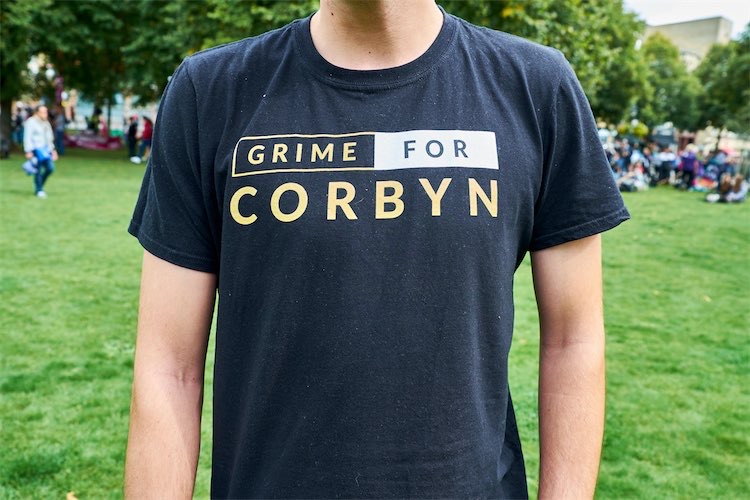Common People? When Britpop and politics met
Downing Street, July 1997: Tony Blair (left) meets Noel Gallagher | Alamy
7 min read
Thirty years ago, in 1993, a new musical movement emerged that led to a flirtation between New Labour and Britpop. Rob Merrick takes a look at what this unlikely interaction between politics and popular music tell us about their relationship
It was a time when pop and politics chimed as never before, when Britpop and a young Labour leader with a shady rock past conquered the country together, and it was born exactly 30 years ago.
The memories are hazy now, but Labour really did beg Noel Gallagher to play at its party conference and Peter Mandelson did dance with the record label boss who discovered Oasis, as one headline married the movements by proclaiming “What’s the Story? Don’t vote Tory”.
I believe it all began on February 22nd 1993 – of which more later – a perfect anniversary to remember the extraordinary efforts Labour made to woo music’s new gods, to ask if it could happen again – and whether it would help Keir Starmer grab the keys to No 10 if it did?
Let me take you back three decades, to when an unpopular Conservative government, dragged down by economic bungling and endless scandal, appears easy meat for a rising Labour party parked firmly on the centre ground. Sound familiar?
Labour is about to fall into the hands of the former lead singer of Ugly Rumours, a Mick Jagger devotee who wowed Oxford University in 1974 in purple loons and a cut-off t-shirt that exposed his “rippling bare torso”, it was said.
Tony Blair, for it was he, must have been reminiscing about his brief rock career when he hosted Damon Albarn at the House of Commons 21 years later, seeking his support for the election campaign to come.
“So what’s the scene like out there?” the future prime minister asked the Blur frontman, in a contender for the most excruciating moment of the bid to make music the key ingredient of a ‘Cool Britannia’ cocktail.
It has rivals though. Consider how Labour’s future general secretary drove around to deliver personally the membership card of Alan McGee, the Creation Records founder who propelled Oasis to stardom.
“Can you get Noel Gallagher to come up with an acoustic guitar and do a couple of songs,” McGee remembers Margaret McDonagh asking, of the looming conference in Blackpool.
Noel was too “knackered” after touring, sadly, but McGee went and handed Blair his platinum disc on stage at a late-night party, before “shuffling around” with Mandelson on the dancefloor.
The love-in even saw the debt repaid in later Britpop legislation, the New Deal for Musicians which spared aspiring artists from losing their benefits if they failed to look for work. They must be allowed to abandon their dreams, it was protested.
 A unique political moment? Well, the answer to the question ‘could it happen again?’ is that…..it did, albeit without the political triumph of 1997.
A unique political moment? Well, the answer to the question ‘could it happen again?’ is that…..it did, albeit without the political triumph of 1997.
Roll forward to 2017 and the website grime4corbyn.com is offering free tickets to grime gigs and merchandise to young people who register to vote for that year’s general election.
Grime was the Britpop of its time, but far more ground-breaking, a black British subculture that catapulted its leading lights from pirate radio stations in east London to national fame.
Some had the same passion for Corbyn as Gallagher and McGee had for Blair, most notably Stormzy who told an interviewer: “I feel like he gets what the ethnic minorities are going through and the homeless and the working class.”
The rapper A J Tracey featured in an official Labour video, pointing to the NHS, the housing crisis and tuition fees – which Labour then pledged to scrap – as causes young people must fight for.
At that 2017 election, turnout among 18-to-24-year-olds topped 60% – up from just 43% two years earlier – and Corbyn’s former spokesperson has no doubt the support from grime’s stars helps explain the rise.
Matt Zarb-Cousin tells The House: “It definitely helped us in 2017. It’s no coincidence that they appeal predominantly to the young demographic that resonated with Corbyn most.”
Grime4corbyn went largely “under the radar”, Zarb-Cousin explains, less noticed than the ‘Oh Jeremy Corbyn’ chants at that year’s music festivals, or the leader’s appearance at Glastonbury, but key nonetheless and built on “conviction”.

But Alastair Campbell, Blair’s spin chief – who memorably asked Albarn “What if you said 'Tony's a wanker'?” at that 1995 meeting – appears to have grown more sceptical as the decades have passed.
Campbell plays down the idea that “endorsements by pop stars” change people’s votes, while acknowledging: “They can help create a general sense that a party or a politician has a broadening reach.
“The kind of stars who were coming out for us gave the sense that we had energy and a modern appeal, whereas the Tories were still wheeling out Jimmy Tarbuck and Jim Davidson.”
Mr Campbell also sees the downside, adding: “There is always a risk with stars too. Once they get coverage for backing you there is always the chance they will eventually decide to turn against you, and they will get even more coverage for that!”
Ben Nunn was Starmer’s director of communications until 2021 and reveals doubts that politicians and pop stars can ever act in harmony that one suspects are shared by his former boss, calling the idea “a bit patronising”
“I don't think it's good for celebrities and I don't think it's good for politicians. People want to be convinced by politicians about how to vote, not told by celebrities how they should vote,” Nunn says.
“Musicians undoubtedly have a platform, and it is for them to choose how they use it, but my advice to political parties would be to keep your focus on the voter and winning the argument with them.”
In 2023, one rock legend has already turned on the Tories with Rod Stewart’s outspoken attacks on the party he long backed. It might leave Kate Bush as their only famous supporter – and she won’t be running up that hill anytime soon.
John Robb, a former punk singer turned journalist, has an unmatched vantage point over today’s artists as the inspiration behind the Louder Than War music website and magazine.
He believes the current crop’s politics echoes previous eras, saying: “There are still bands on the left that would support Labour. Closer to the election, people may come out in public.”
Music still has the power to protest, but is anyone listening?
However, Robb dismisses the idea of musicians having the same impact as in previous decades, arguing they are no longer “central to the teenage discourse” and often only the “soundtrack to social networking, gaming and other activities”, making it much harder for their voices to be heard.
“Music still has the power to protest, but is anyone listening?” Robb asks – also pointing out that some “modern political pop” explores gender politics, a subject Labour wants to run a million miles from.
And why is February 22nd 1993 the birth of Britpop? Before that date, the scene was really Suede alone and the giddy excitement triggered by the band’s first two singles in 1992.
When the third single landed on the last Monday of February, it instantly sold 100,000 copies and landed at No 7 in the charts – an unheard-of success for an Indie band at the time – but, crucially, two other bands released debut albums that same day.
Radiohead went on to be the antithesis of Britpop, but the glam-influenced Pablo Honey fitted perfectly into the new guitar movement, as did The Auteurs’ New Wave and the mysterious lyrics of singer Luke Haines.
Suddenly, Suede had company. Also, in that last week of February, a famous issue of Select magazine – featuring Suede’s Brett Anderson wrapped in a Union flag under the headline ‘Yanks Go Home’ – hit newsagent shelves.
Tony Blair, not yet Labour’s leader, would have been blissfully unaware that something big was stirring, but the seeds of a memorable alliance had been sown.
